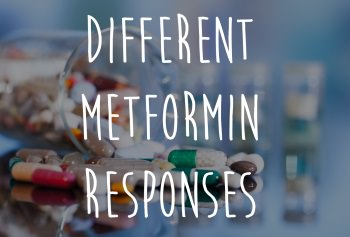An entrepreneur at heart, Chris has been building and writing in consumer life insurance and health for over 11 years. He's contributed to 1,000+ medical, health, financial and wellness articles and product reviews written in the last 11 years.In addition to Pharmacists.org, Chris and his Acme Health LLC Brand Team own and operate Diabetic.org, PregnancyResource.org, Multivitamin.org, and the USA Rx Pharmacy Discount Card powered by Pharmacists.org.Chris has a CFA (Chartered Financial Analyst) designation and is a proud member of the American Medical Writer’s Association (AMWA), the International Society for Medical Publication Professionals (ISMPP), the National Association of Science Writers (NASW), the Council of Science Editors, the Author’s Guild, and the Editorial Freelance Association (EFA).
Home » Different Metformin Responses? Genetics Explain Why
Different Metformin Responses? Genetics Explain Why

Chris Stocker

Chris Stocker


Chris Riley
To learn about Diabetes Life Solutions commitment to transparency and integrity, read our Editorial Disclosure
Last Updated on January 29, 2026
The most common type 2 diabetes treatment, metformin, is well-known within the diabetic community. It’s almost always the first prescription a doctor will give you when looking to control the chronic condition. It’s been around for 50 years and it used by millions of people across the globe. But some diabetics notice more benefits from the drug than others until recently we had no idea why, but a study could reveal some more information about metformin and how it impacts our health.
Metformin is used to control glucose levels and lower the risk of having severe health complications related to the condition. It’s also been shown to have a few added benefits as well, like lowering the chances of Alzheimer’s disease, Parkinson’s disease, and some cancers. As a diabetes medications, over one-third of diabetics don’t receive the effectiveness from a regular dose of the drug. Until recently, there wasn’t much information on why some people responded well and others didn’t. This new data could help tailor treatments to each diabetic, instead of treating each case the same.
If you are interested in life insurance and want to know if you can qualify for life insurance with diabetes, we can answer your questions and help you obtain the coverage you deserve.
 The study used over 13,000 participants and did a three-stage genome-wide association study to pinpoint genetic variants that related to differences in the metformin responses. The study found that there was common gene, SLC2A2 that was correlated with a positive response to the medication.
The study used over 13,000 participants and did a three-stage genome-wide association study to pinpoint genetic variants that related to differences in the metformin responses. The study found that there was common gene, SLC2A2 that was correlated with a positive response to the medication.
The researches the findings from the study makes sense because the gene is what encodes GLUT2 which is a glucose transporter protein and regulates the movement of glucose between the kidneys, liver, and blood. The data from liver samples backed up the idea. Because metformin slows the liver’s production of glucose, it actually reverses the deficit.
One of the lead authors of the study, Sook Wah Yee, PhD, a researcher in Giacomini’s lab had several interesting thoughts on metformin and the study, “Metformin is an old drug that is widely used, yet we are still discovering more about how it works. Although we’ve known that GLUT2 is important for glucose transport for many years, we had not previously thought that variation in the gene encoding this transporter would alter how metformin works.”
One important thing from the study to note is the diversity of the study. The authors specifically note that the study included a large portion of data from African American diabetes. The study showed that African Americans tended to have a higher rate of having the recently discovered gene that boosts metformin’s effectiveness.
The study was published in Nature Genetics shows the initial results from a “Metformin Genetics Consortium”, which is a large-scale study led by Kathy Giacomini, who is a professor of bioengineering and therapeutic sciences in UC San Francisco’s schools of Pharmacy and Medicine and also lead by Ewan Pearson who is a professor of diabetic medicine at the University of Dundee in Scotland.
The more that we understand about our treatments, the more that we can manage our diabetes. Not everyone is going to respond to treatments the same way, and once we figure out why, we can work on creating new and more efficient drugs.
Although metformin is one of the oldest and most popular diabetes treatment, there hasn’t been much research on figuring out how it works. Now that we know, we can continue to examine those genes in the human DNA that can lead to more treatments and maybe even a cure.

Chris Stocker
Owner and author of The Life of a Diabetic. He's been writing about Diabetes related topics for over 10 years, and has been featured in HealthLine, Diatribe, Diabetes Advocates and JDRF.
Find out how much life insurance with Diabetes Life Solutions costs